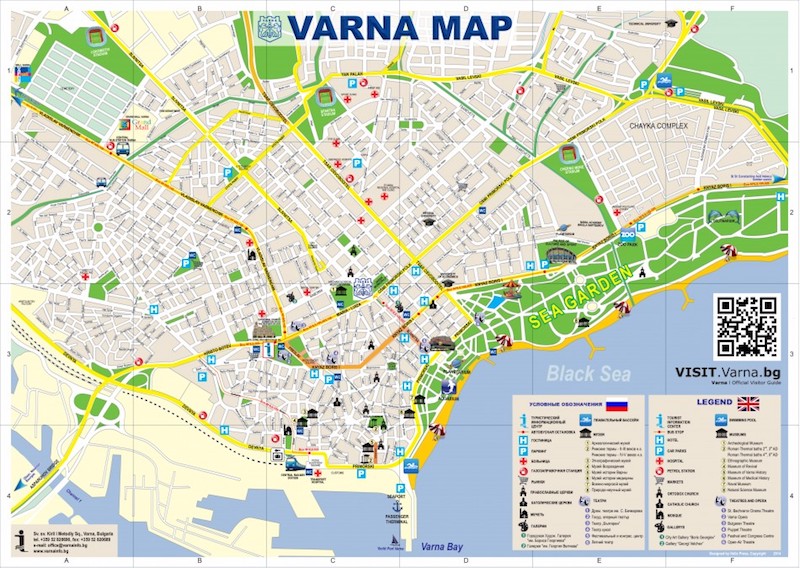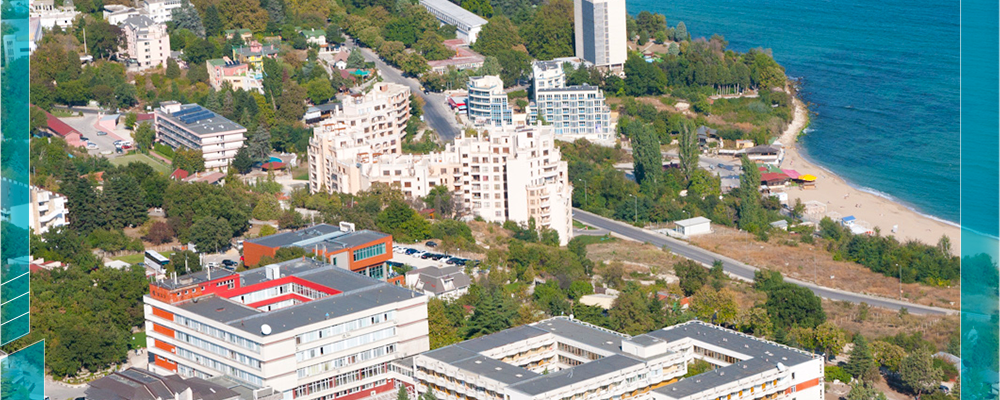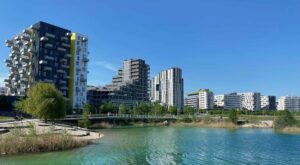BY KALINA VARBANOVA and TERRY BOYD
It’s not Florida nor Miami. It’s certainly not Stockholm or Amsterdam with their frigid seas and sullen skies.
 Varna is better.
Varna is better.
Besides sea, golden beaches and a vibrant nightlife, Varna offers much more for young, English-speaking expats, especially those with tech skills.
Varna is Bulgaria’s third-largest city and includes a resort area on the Black Sea coast. In addition to world-class beaches and resorts, the city also has IT, outsourcing and startup opportunities … opportunities that are only going to increase.
Official policy is focused on positioning Varna as the city of digital knowledge and IT development in Bulgaria. Varna’s young mayor Ivan Portnih aspires to make his city an attractive place for investments and ICT, ensuring attractive living conditions with green spaces for recreation, development of the transportation network, cultural and social life and, of course, low taxes.
You’re thinking, “Wait, why wouldn’t Sofia be the tech center?” And it is.
Bulgaria has a surprisingly robust IT and tech scene. We read this amazing factoid on StartUs mag’s infographic about starting a company in Varna: Bulgaria is No. 3 in Europe and No. 10 worldwide in the total number of certified IT professionals.
We’re assuming they’re referring to certifications from Cisco, Microsoft and others.
Several big players are located in, or were founded in, Sofia, including Telerik, a multi-platform software and digital tools firm, and Chaos Group Laboratories, a global leader in digital filmmaking and virtual reality, as well as rendering technology for architects and designers.
Online food delivery app BGmenu was just acquired for 10.5 million euros by Takeaway.com. Takeaway.com is the leading online food delivery marketplace in Europe outside the United Kingdom.
But Varna also has some success stories like Titan Gate, a pioneer in digital media and adtech.
And unlike Sofia, Varna’s location on the Black Sea coast gives Bulgaria another tool to attract young talent from the United States, Europe and around the world. That’s important because Bulgaria – like most of the developed world – needs talent!
Varna has all the ingredients for future greatness
There are three cities outside Sofia – Plodiv, Burgas and Varna – where tech and outsourcing already are strong. But Varna is arguably the city with the most potential due to its universities, mathematics school, language schools and schools that teach information technologies.
Of the three cities, Varna has the most human capital and resources, according to the annual report of the Bulgarian Outsourcing Association. But the BOA also notes there will be 20,000 jobs coming online into 2020 as the outsourcing industry expands from IT call centers to more sophisticated and demanding sectors including accounting and HR.
Varna has six universities and three colleges with a total of about 40,000 students. Of those 40,000 about 10 percent are internationals – about 3,500 to 4,000 students from all over the world.
Last year, Portnih organized a “trilateral meeting” to boost development of the IT and outsourcing sector. The goal is to bring together business, universities and municipal authority, with the goal to attract to Varna the biggest names in the tech sector.
Check out Varna’s startup community
The startup community in Bulgaria is growing rapidly. Sofia is hosting its largest tech and startup event, Sofia Startup Expo, next week.
But Varna already has the foundation on which to build a significant ecosystem:
- The main hub in Varna is Beehive, the local co-working space. Beehive provides space and support for startups, and it sponsors startup events such as Startup Weekend Varna. The Medical University of Varna also sponsors Medtech startup events.
- VarnaLab is the hackerspace in Varna.
- Innovator Creative Spaces (see above) was funded by the European Union last year when Varna was the E.U.’s European Youth Capital.
It also has several universities and language schools including:
• Varna University of Management. VUM offers bachelors and masters double-degree programmes, taught entirely in English, in cooperation with universities in countries such as the UK (Cardiff Met), Switzerland (Business Hotel Management School) and the Netherlands (Stenden University).
• Technical University of Varna, which is a conventional engineering school.
• Several language schools including the English Academy.
In mid-2017, startup company Innovator Creative Spaces announced plans for a network of high-tech co-working spaces starting with Varna, according to SeeNews.
The shared workspaces will be equipped with 3D printers, CNC routers, virtual reality labs, IOT and laser cutting machines, Innovator Creative Spaces executives stated in a news release.
The company wants to extend the network into Sofia, Plovdiv and Stara Zagora.
(The expat website Foreigner.Bg has a good overview of the scene here in “Why Launch Your Startup in The Bulgarian City Varna.”)
Varna doesn’t just love you, it needs you
Bulgaria has the same demographic issues as most of Europe … times 10.
Its population is one of the oldest in the world, only behind Japan, Germany, Italy and possibly Finland, with 27 percent of its people over 60, and an average age of about 43.
Bulgaria is projected to have the fastest-shrinking population in the world, and already has lost 20 percent of its population since the 1990s, mostly to more prosperous countries such as Germany and Netherlands, according to the BBC.
So it follows Bulgaria currently has a shortfall of skilled workers particularly in the fields of Engineering and IT, and needs highly skilled professionals from other countries. It also has the best of both worlds. It’s an E.U. country, but it’s NOT part of the Schengen area. So many of our expats have done their 90 days in Bulgaria after their visas expired in Schengen countries such as Greece and Germany.
In 2011, Bulgaria was the first country to implement the E.U.’s Blue Card renewable visa that enables highly skilled non-EU workers to work in the E.U.
Last year, Bulgaria’s parliament voted to extend the Blue Card terms to four years from two years.
The government reasoned that EU Blue Card holders are mainly employed in the IT and tech sectors, which have great potential for development but insufficient local talent.
So, there you go, expats.
The numbers:
• Bulgaria has a 10-percent flat corporate tax on profits and 5 percent on dividends, the lowest in the E.U. and fifth-lowest in Europe.
• The personal income tax is flat at 10 percent for everyone.
• For a former Soviet Bloc country, bureaucracy here moves pretty quickly. There are dozens of firms that can help you set up a company in Bulgaria within one day.
• The cost of living in Varna is ridiculously low compared to, say, Stockholm or Amsterdam. Rents for two or three bedroom apartment vary between 250 euros and 500 euros per month. So, the cost of living here is about 50 percent lower than in the rest of the European Union, and at least 80 percent less than in Scandinavia. (See our earlier post here on buying in Bulgaria.)
• There are several incubators and accelerators in Sofia including 11 Ventures and early-stage funds including Neveq.
• Bulgaria as a whole has really fast and really affordable internet connections. It’s ranked No. 20 in the world with an average speed of 15.6 Megabits per second (Mbps). That’s waaay faster than Germany, and only slightly slower than Norway, Sweden and Hong Kong … at half the cost. Yes, Romania has a slightly faster connection, but let them do their own post.
• Varna’s food scene is solid and includes everything from haute cuisine to sushi. Fast food in Varna is healthy and vegan and organic foods are common.














